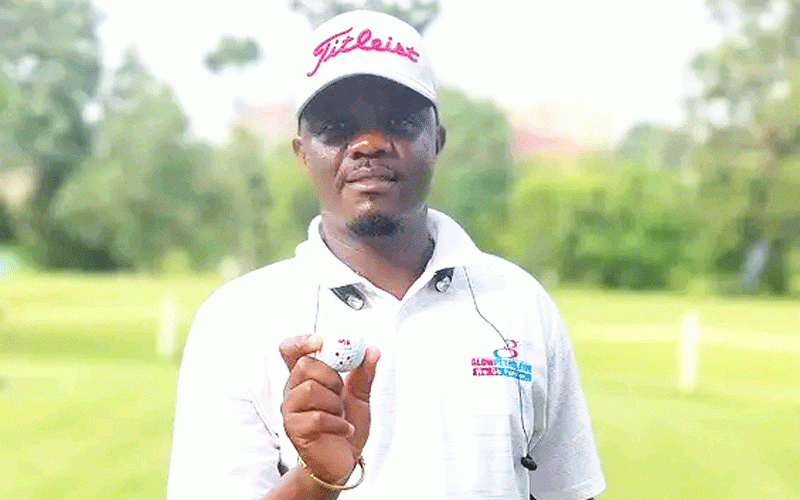
Many Zimbabweans will remember Peter as a crazy auctioneer and horse racing enthusiast. I remember him because he was keen on rock ‘n’ roll.A mutual friend wrote to me about his death and said: “Peter was always up for a laugh. I don’t think I ever saw him with down-turned lips. We had him doing voiceovers in the studio lots of times, and they were always happy occasions. Peter always had a joke or a story to tell.”He did an auction for the SOS Children’s Village up at Thetford House. The auction consisted of the most bizarre collection of items — a Rolls Royce, a large quantity of cement, a pair of emeralds, (which Peter and a donor managed to lose constantly in the grass).Peter was living in Cape Town, having reluctantly left his beloved Zimbabwe. He died from a respiratory attack late Monday night.He had played a round of golf the day before and was in fine fettle, but he was suffering from emphysema.
Peter wrote the following in 2003:Horse-breeding industry destroyed, future grim
ROBERT Mugabe, sir, in the vain hope that you might possibly sneak away from your “minders” for a quiet moment and read this letter, not to mention the even vainer hope that you will actually care, let me lay before you the facts concerning the thoroughbred racing and breeding industries in our land, Zimbabwe, in this desperate year, 2003. Last Friday, May 16, in the Nelson Mandela Hall at Exhibition Park, 185 yearling colts and fillies, the smallest number offered in a decade or more, were offered for auction by the Thoroughbred Breeders Association of Zimbabwe at their 33rd annual sale.Turnover soared by some 500% over last year’s sale to $800 million. On the surface this would seem to be good news, but closer analysis reveals that this is not really the case.In May 2002, when the South African rand was trading on the streets at approximately $40, turnover at this sale reached $167 million — i.e. around 4 million rand. Last week, as the economy in our country continued on its precipitous decline, the rate was anywhere between 200 and 250.Charitably-speaking, then, we were no further forward in real terms than we were a year ago, and at the maximum rate we had actually regressed.Inflation and the seemingly uncontrollable devaluation of the national currency unit put this year’s “record” sale in perspective and give little cause for cheer.What is cause for alarm, however, is the diminution in the numbers of horses being bred in Zimbabwe and the implication that this has for the future of a leisure and sporting industry that has existed here for 110 years.Allow me to explain, in clear and succinct terms.Ten years ago, the thoroughbred-breeding industry, part of agriculture in that most breeders were, and are, farmers, was producing some 400 foals annually from a breeding population of roughly 700 mares and 30-plus stallions, most of the latter expensively imported from SA and abroad.Of those 400 foals, approximately 75 would be entered for the annual sale, whilst the rest were to be raced/leased privately. A small number would be exported, some would die or break down before getting to the races and roughly 250 new horses were coming into racing each new season. The whole business, in the early 90s, was booming.Today, thanks to your “land reform” programme and your government’s otherwise interesting approach to national administration, the breeding industry has been all but destroyed and the future looks grim.Breeding stock numbers have fallen to an all-time low as mares have either been destroyed, in some cases by the peasants who have invaded farms, or exported to economically and physically safer countries in the region.The stallion band, a pillar of any successful industry, is also at an historical nadir in terms of numbers and, more importantly, quality.The effects of all of this are now impacting disastrously upon the racing industry where the number of horses in training has dipped well below the marginal line of requirement. Ten years ago, when we had all been deceived into thinking that you and your government had the interests of our nation at heart, this country boasted a healthy breeding industry, as explained earlier in this letter, two racecourses, a resident colony of some 22 jockeys and 700 plus horses in training spread between at least 30 trainers.Today, sir, the number of horses in training has halved; no more than half a dozen jockeys actually live here anymore for all the obvious reasons, which means that the Mashonaland Turf Club and various owners must expend vast sums of money importing jockeys from South Africa and Mauritius; there are no more than a dozen trainers operating here and that number continues to decline and, since the closure of Bulawayo racing in 2001, only Borrowdale Park remains active in staging live horseracing. In other words, the whole complex edifice of the thoroughbred industry is now in the classic stages of pre-closure. It is almost impossible to see how horseracing can survive the depredations of your policies.To add ultimate insult to injury, this is the year of Ipi Tombe, the world champion filly now based in America who graduated from the Harare sale ring in 2000 and has conquered all before her locally, in South Africa and, latterly, in Dubai. She will continue to do the same in America. The farm on which she was bred, Golden Acres in Marondera, has become virtually inoperable thanks to militant land invasions. So, the proudest moments in the history of breeding and racing in this country have also become the saddest.Like every other industry, the breeding of racehorses requires finesse, expertise, capital and, more than anything else, hope for the future. Right now there is no hope, and soon we will neither breed nor race the thoroughbred in this country. This, sir, is what you and your government have done to something beloved by so many for so long.
Peter Lovemore.
By Gerry Jackson











